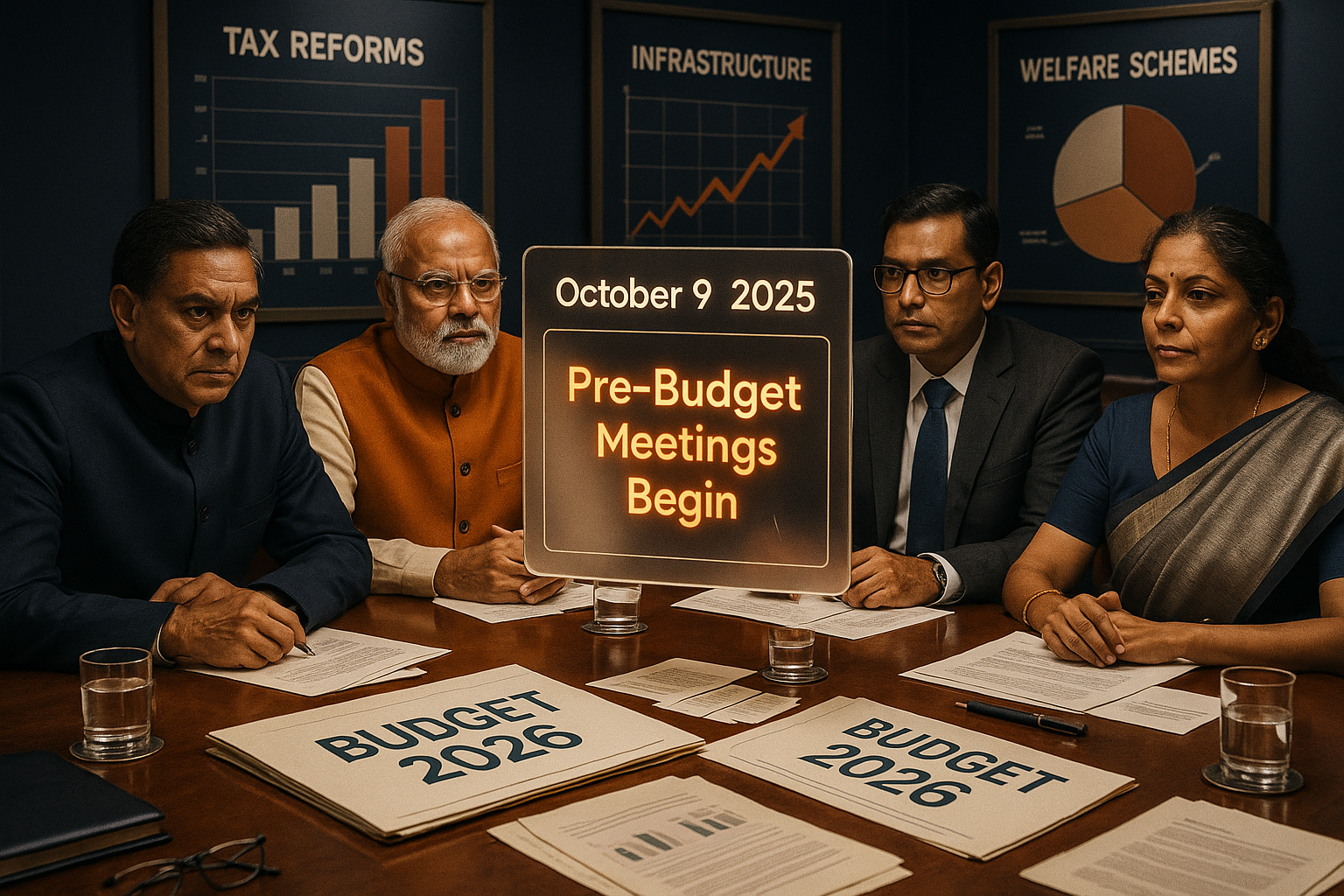The Government of India will commence pre-Budget consultations from October 9, 2025, engaging with industry leaders, economists, and stakeholders to finalize priorities for the upcoming Union Budget. The discussions will focus on growth strategies, fiscal consolidation, tax reforms, and measures to boost investment, consumption, and employment.
The early start reflects the government’s intent to craft a forward-looking and inclusive Budget 2026, balancing fiscal discipline with growth imperatives.
Key Focus Areas of Consultation
The pre-Budget meetings will bring together stakeholders from multiple sectors to provide policy suggestions. Likely areas of discussion include:
Tax Reforms: Rationalization under GST 2.0 and adjustments in direct tax structures.
Investment Push: Incentives for manufacturing, infrastructure, and digital economy growth.
Social Welfare: Strengthening schemes for healthcare, education, and rural development.
Green Transition: Policies to accelerate renewable energy adoption and sustainable financing.
These consultations are expected to align India’s fiscal priorities with its long-term Viksit Bharat 2047 vision.
Why the Early Start Matters
Traditionally, pre-Budget meetings are held closer to December. Starting in October provides ministries more time to incorporate inputs and finalize a comprehensive fiscal roadmap. It also reflects the government’s intent to adopt a structured and participatory approach to budget-making.
This timeline ensures that stakeholder voices are well-integrated into policy design, boosting confidence among businesses and investors.
Implications for Industry and Economy
For industries, the consultations provide a platform to seek targeted reliefs, regulatory clarity, and sector-specific incentives. Economists see this as an opportunity for the government to address structural challenges such as job creation, inflation, and capital market deepening.
A well-designed Budget, shaped by these inputs, could further strengthen India’s position as a resilient and high-growth economy in an uncertain global environment.
Why This Matters
For Businesses: Opens a channel to influence fiscal and policy decisions.
For Policymakers: Ensures inclusive and participatory budget-making.
For Investors: Signals policy predictability and long-term economic vision.
The early consultations reflect the government’s commitment to transparency, inclusivity, and strategic economic planning.












